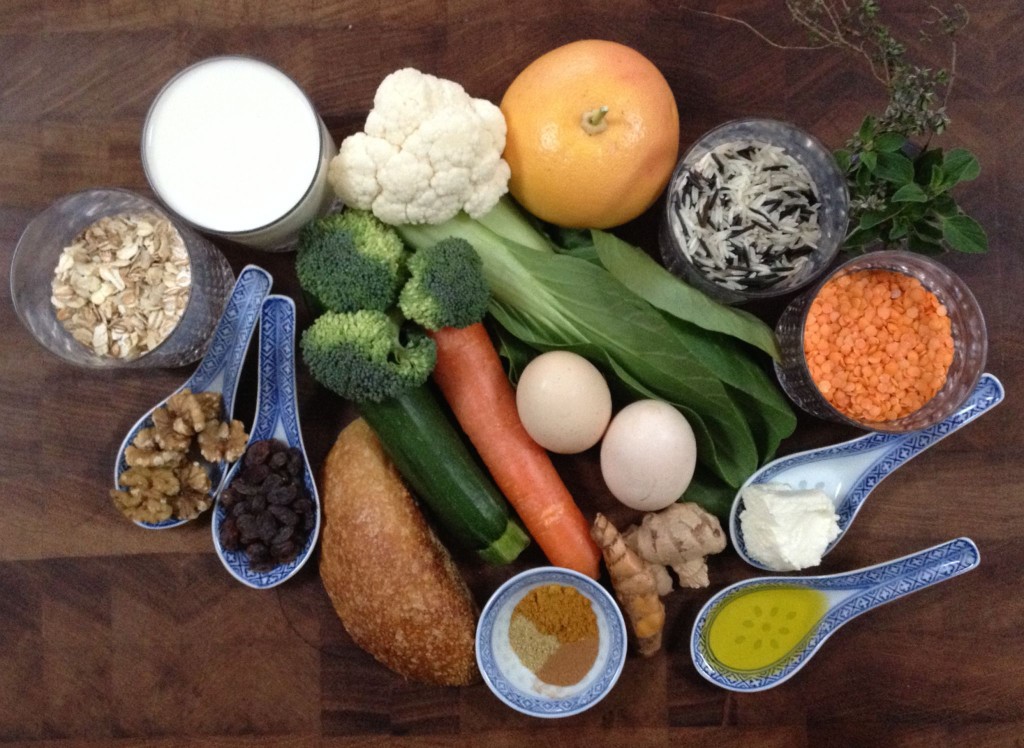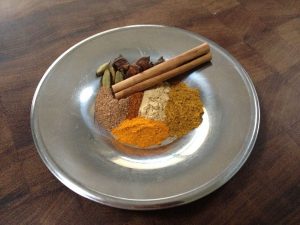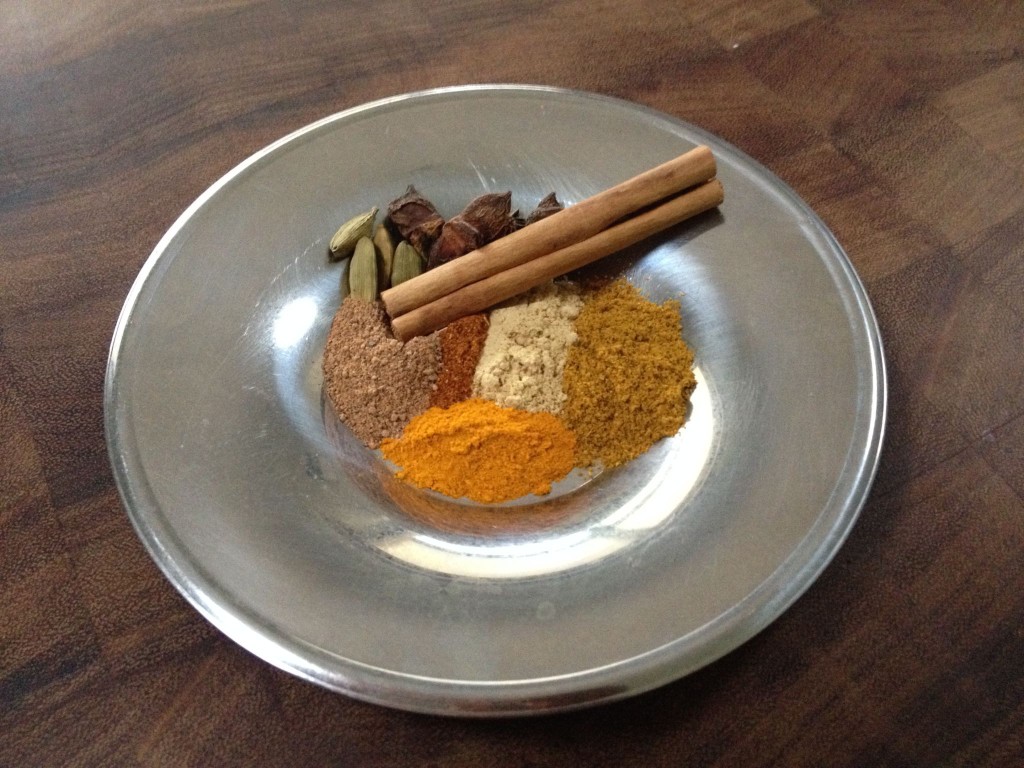Are there foods that reduce pain? For anyone who has experienced back pain or arthritis, this information is a must. At the Soft Tissue Symposium I presented an overview of the current Australian Dietary Guidelines, and the key foods that reduce pain. Elizabeth Greenwood, Naturopath and Senior Lecturer from Endeavour College, followed on with an overview of key culinary and medicinal herbs and spices that assist with pain reduction.
Foods That Reduce Pain
Foods that reduce pain contain phytochemicals, vitamins, minerals and/ or omega 3 oils. The Australian Dietary Guidelines are a great place to start to identify foods that reduce pain. Unprocessed or whole foods are going to assist with pain management, where as highly process foods that contain large amounts of sugar or salt and/or saturated fat will increase your pain levels.

The ways in which foods influence pain are via the body’s inflammatory processes. Components of foods, such as flavonoids, vitamins and minerals influence these processes. Other components of foods, for example Omega 3 fats, become part of our cell membranes, lowering our experience of pain. Antioxidants in foods, including some vitamins and phytochemicals, protect the cell membrane from oxidative damage. All of these foods, and their components, work in different ways to reduce pain.
In chronic pain, our stress hormone, cortisol, is maintained at high levels. Not only does this affect the body’s pain levels, it plays havoc with our metabolic pathways. Foods that reduce pain work in several ways to protect the body and lower our levels of pain. This is why we need to include all of the different types of anti-inflammatory foods. These foods will also assist the body to regulate other metabolic pathways, such as body weight and blood sugar regulation.
There is no one food that provides pain relief — a combination of whole foods, and herbs and spices help fight inflammation.
FOODS AND FACTORS THAT REDUCE INFLAMMATION
Include these:
- Coloured fruits and vegetables — include blue, purple, green, yellow, orange and red. Eat the skins whenever possible, as they contain larger amounts of the phytochemicals.
- Herbs and spices
- Wholemeal and whole grain cereals
- Walnuts, flaxeeds, linseeds, sardines and salmon
- Fermented foods, such as yoghurt and sauerkraut
- Adequate sleep
- Appropriate exercise
FOODS AND FACTORS THAT INCREASE INFLAMMATION
Reduce these:
- Fatty meats and poultry and processed foods that are high in saturated fats
- Confectionary, baked goods, potato crisps, soft drinks and cordials
- Excess alcohol
- Overeating
- Starvation
- Cigarette smoking
- Psychological stress
Spices and Supplements that Reduce Pain
- Turmeric has been included in Indian food for centuries. It can be added into most foods. Traditionally it has been a key ingredient of curries, but it also blends well in stir-fries, soups and even your breakfast porridge or muesli. It is considered a neutral spice (neither heating or cooling), so suitable for everyone.
- Ginger is a very warming spice, so may not be suitable for everyone or only included in small amounts. It is very versatile and can be added to teas, curries, stir-fries and poached fruit.
- Chilli is used in creams. It is applied to skin and can be used for about six weeks at a time. I suggest discussing this with your healthcare practitioner.
- Red grapes and red wine contain a phenolic compound called resveratrol, which reduces inflammation and works as an antioxidant. Resveratrol is also found in the skin of raspberries, blue berries and mulberries.
- Magnesium supplements can be taken for acute and chronic conditions. It is best to get advice on the dosage from your healthcare practitioner.

Foods, Lifestyle and Stress-Reduction
Last week we explored the mind’s affect on healing the body and our experience of pain. This week anti-inflammatory foods, herbs and spices have been revealed. It is a combination of eating foods that reduce pain, as well our lifestyle choices that provide relief to chronic pain. The practice of mindfulness will assist you in choosing what is best for you. I also recommend discussing supplements with your healthcare practitioners, because they can interact with other supplements and medications.
